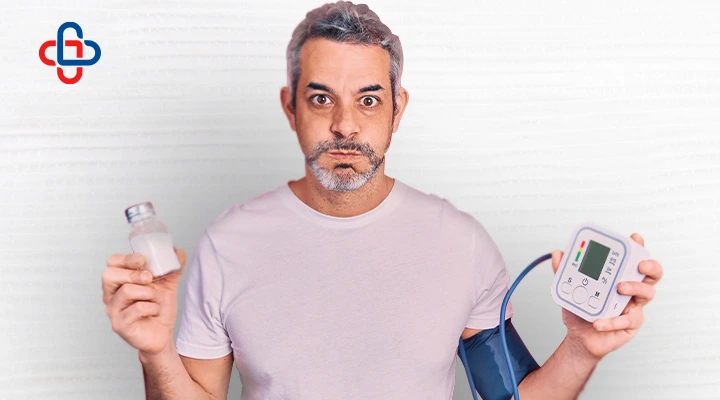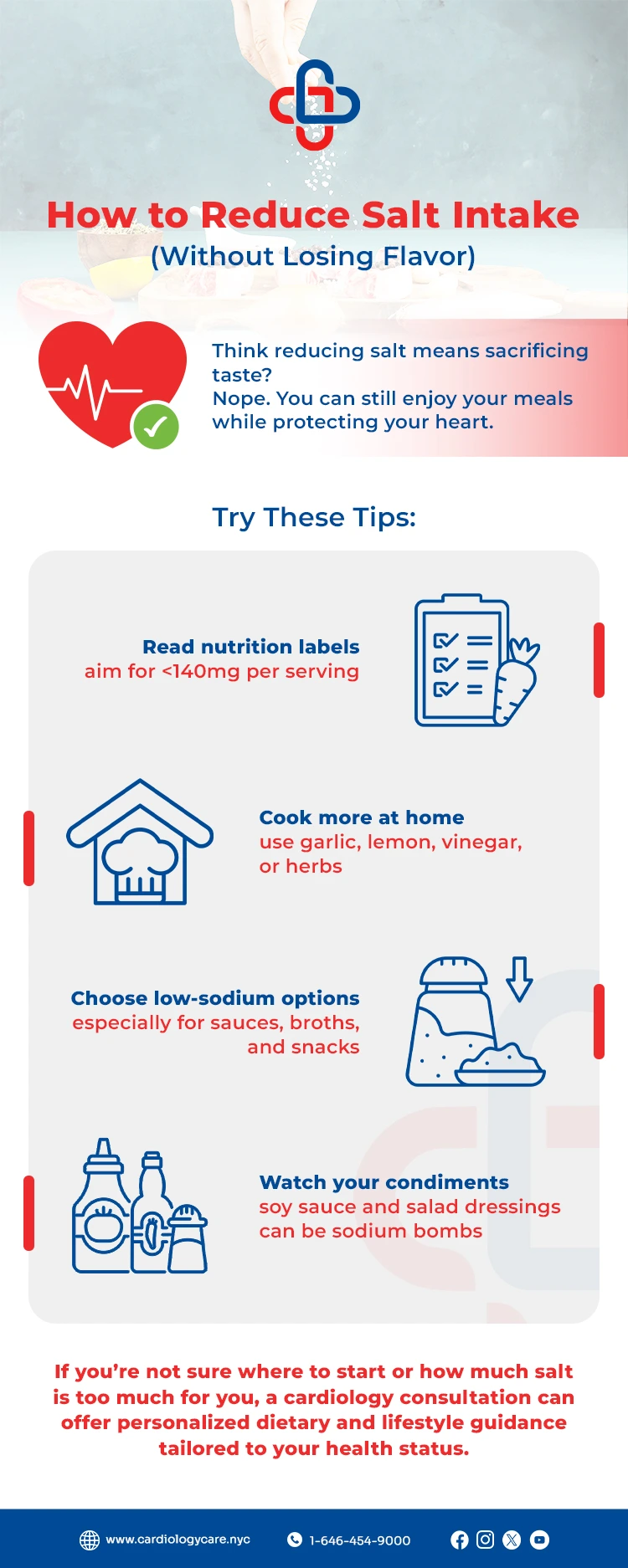Love salty snacks but worried about your blood pressure? You’re not alone. The connection between salt and high blood pressure has been debated for decades—but what’s the real story?
If you’ve ever wondered things like “Does sodium increase blood pressure?” or “Can a high-sodium diet cause hypertension?”—you’re in the right place. In this post, we’re unpacking the science, busting the myths, and giving you the facts on how salt affects blood pressure and heart health.
Table of contents
Does Salt Cause High Blood Pressure?
Yes—but it depends. Not everyone reacts to salt the same way. Some people are what’s called salt-sensitive, meaning their blood pressure rises significantly in response to sodium.
Here’s how it works: when you consume excess sodium, your body retains more fluid. This added volume increases pressure on your blood vessels—making your heart work harder. That’s how salt and high blood pressure are linked for many people.
Understanding Salt, Sodium, and Their Role in the Body
Let’s get this straight: salt is made of sodium + chloride, but it’s sodium that’s the key player in blood pressure regulation.
Your body actually needs sodium to:
- Maintain fluid balance
- Support nerve impulses
- Aid muscle function
But like many things in life, too much sodium can throw things off. It disrupts fluid balance and increases strain on your heart and kidneys—leading to hypertension and long-term cardiovascular issues.
What Is Salt Sensitivity? And Does It Affect Everyone?
Salt sensitivity is a condition where a person’s blood pressure changes dramatically based on their sodium intake. It’s a real, measurable phenomenon—and it doesn’t affect everyone equally.
People more likely to be salt-sensitive include:
- Adults over 50
- Individuals with kidney disease or diabetes
- Black adults (due to genetic predisposition
- Those with a family history of hypertension
For these folks, even a moderate amount of sodium can cause a spike in blood pressure.
The Effects of a High-Sodium Diet on Blood Pressure and Heart Health
A high sodium diet isn’t just about adding salt at the table. The real danger lies in:
- Processed meats (bacon, deli meats)
- Canned soups and sauces
- Restaurant and fast food meals
Over time, consistently high sodium intake can lead to:
- Chronic hypertension
- Heart enlargement
- Increased risk of stroke and heart attack
These effects often go unnoticed until they’re advanced. That’s why a heart health screening can be essential in identifying early warning signs and preventing long-term cardiovascular health complications.
How to Reduce Salt Intake (Without Losing Flavor)
Think reducing salt means sacrificing taste? Nope. You can still enjoy your meals while protecting your heart.
Try These Tips:
- Read nutrition labels – aim for <140mg per serving
- Cook more at home – use garlic, lemon, vinegar, or herbs
- Choose low-sodium options – especially for sauces, broths, and snacks
- Watch your condiments – soy sauce and salad dressings can be sodium bombs
If you’re not sure where to start or how much salt is too much for you, a cardiology consultation can offer personalized dietary and lifestyle guidance tailored to your health status.
Can Reducing Salt Actually Lower Blood Pressure?
Yes, and the science backs it up. Studies show that reducing sodium intake can lower systolic blood pressure by 5–6 mmHg. For salt-sensitive individuals, the impact is even greater. Pair it with a potassium-rich diet (like the DASH diet) and the benefits are even stronger. Potassium helps your body get rid of excess sodium and eases tension in your blood vessel walls. And don’t forget—regular blood pressure screening helps you track progress and catch problems early.
Conclusion:
While not everyone is salt-sensitive, most people benefit from lowering their sodium intake—especially those managing high blood pressure or trying to prevent it. Sodium isn’t evil. Your body needs it. But in our modern diets, it’s way too easy to get too much. By understanding your own salt sensitivity, reading labels, and making smarter food choices, you can protect your heart without giving up flavor.
At Cardiology Care NYC, we emphasize evidence-based, individualized care. Whether you’re newly diagnosed or working to prevent heart issues, our team is here to guide you every step of the way—with practical tools to manage sodium, monitor blood pressure, and live heart-healthy for life.
Frequently Asked Questions
Does sweating reduce the effects of high sodium intake?
Partially. Sweating helps, but it doesn’t cancel out the impact of a high-sodium diet.
Can sodium raise blood pressure in people without hypertension?
Yes. Even without hypertension, high sodium can cause temporary spikes and long-term damage.
Can salt intake affect stress-related blood pressure?
Possibly. High salt may amplify stress responses, but research is still ongoing.
How quickly does blood pressure improve after cutting salt?
Often within days to weeks, especially in salt-sensitive individuals.
Is salt bad for your blood pressure?
Yes, especially in large amounts or if you’re salt-sensitive. It can lead to increased fluid retention and higher blood pressure.
Disclaimer
This blog is for informational & educational purposes only and does not intend to substitute any professional medical advice or consultation. For any health-related concerns, please consult with your physician, or call 911.

